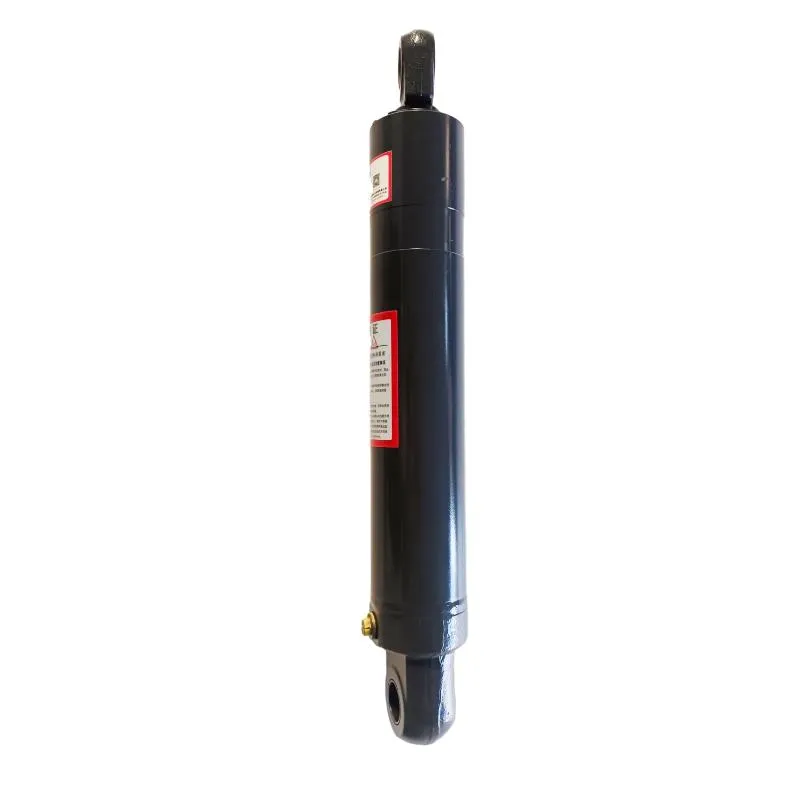Nov . 24, 2024 05:14 Back to list
custom reciprocating hydraulic cylinder
Custom Reciprocating Hydraulic Cylinders An Overview
Hydraulic systems have become a cornerstone of modern machinery and industrial applications, powering everything from construction equipment to automotive manufacturing. One of the most critical components of these systems is the hydraulic cylinder. Among the various types, custom reciprocating hydraulic cylinders stand out due to their versatility and adaptability to specific industrial needs.
What is a Reciprocating Hydraulic Cylinder?
A reciprocating hydraulic cylinder is a device that utilizes hydraulic fluid to produce linear motion. At its core, a hydraulic cylinder consists of a cylindrical chamber, a piston, and connection ports for the hydraulic fluid. As pressurized fluid enters one side of the chamber, the piston moves, providing the necessary force to perform work, such as lifting, pushing, or pulling.
Unlike standard models, custom hydraulic cylinders are specifically designed to meet unique requirements. This customization can include variations in size, capacity, stroke length, and materials, making them suitable for a wide range of applications in different industries.
Importance of Customization
The need for custom cylinders arises from the diverse and often demanding environments in which they must operate. For example, the construction industry may require hydraulic cylinders that can withstand harsh weather conditions, while the food processing sector might need cylinders made from materials that meet hygiene regulations. Customization allows engineers to tailor the cylinders to the specific operational requirements, ensuring optimal performance and longevity.
Design Considerations
When designing a custom reciprocating hydraulic cylinder, several factors must be considered
1. Application Requirements Understanding the application is the first step. Different industries—such as aerospace, automotive, and manufacturing—have varying operational conditions and load requirements.
2. Material Selection The choice of materials can significantly impact the cylinder’s durability and performance. For example, stainless steel may be preferred for environments prone to corrosion, while aluminum might be suitable for lightweight applications.
3. Pressure Rating The cylinders must be designed to handle specific pressure levels. This involves assessing the maximum operating pressure and ensuring the cylinder can withstand overloads without failure.
custom reciprocating hydraulic cylinder

4. Stroke Length and Bore Size Calculating the appropriate stroke length and bore size is crucial for efficiency. This determines the cylinder's movement range and force output.
5. Seal Types Seals prevent hydraulic fluid from leaking and protect the internal components from dirt and contaminants. Customization allows for the selection of seals that cater to specific pressure and temperature ranges.
6. Mounting Features Depending on the installation requirements, the design may incorporate different mounting options to facilitate seamless integration into existing systems.
Benefits of Custom Reciprocating Hydraulic Cylinders
Custom hydraulic cylinders offer numerous advantages
- Enhanced Efficiency By tailoring the design to specific needs, these cylinders often operate more efficiently than off-the-shelf options.
- Improved Performance Customization ensures that the cylinder can handle the specific workload and environment, leading to better overall performance.
- Increased Longevity Designed with the particular operational conditions in mind, custom cylinders tend to have a longer lifespan due to reduced wear and tear.
- Flexibility Industries can adapt and evolve, and custom cylinders provide the flexibility needed to respond to changing demands.
Conclusion
In an era where industrial processes are increasingly complex, custom reciprocating hydraulic cylinders play a vital role in ensuring operational efficiency and reliability. By meeting specific design and material requirements, these cylinders not only enhance machine performance but also contribute to the overall safety and productivity of various industries. The ability to create customized solutions tailored to unique challenges will continue to drive innovation in hydraulic technology, paving the way for advancements that meet the evolving demands of modern machinery.
-
Fork Lift Power Units - Hebei Shenghan | Efficiency, Reliability
NewsJul.13,2025
-
1.5-Ton Turbocharged Cylinder-Hebei Shenghan|Hydraulic Solution,Energy Efficiency
NewsJul.13,2025
-
Auto Hoist Power Units-Hebei Shenghan|Efficiency&Industrial Lifting
NewsJul.13,2025
-
Double Acting Power Units-Hebei Shenghan|Hydraulic Solutions,Industrial Efficiency
NewsJul.13,2025
-
1.5 Ton Lifting Cylinder 70/82-40-290-535 - High-Performance Hydraulic Solution | Hebei Shenghan
NewsJul.13,2025
-
Fork Lift Power Units - Hebei Shenghan | Efficiency&Reliability
NewsJul.13,2025
